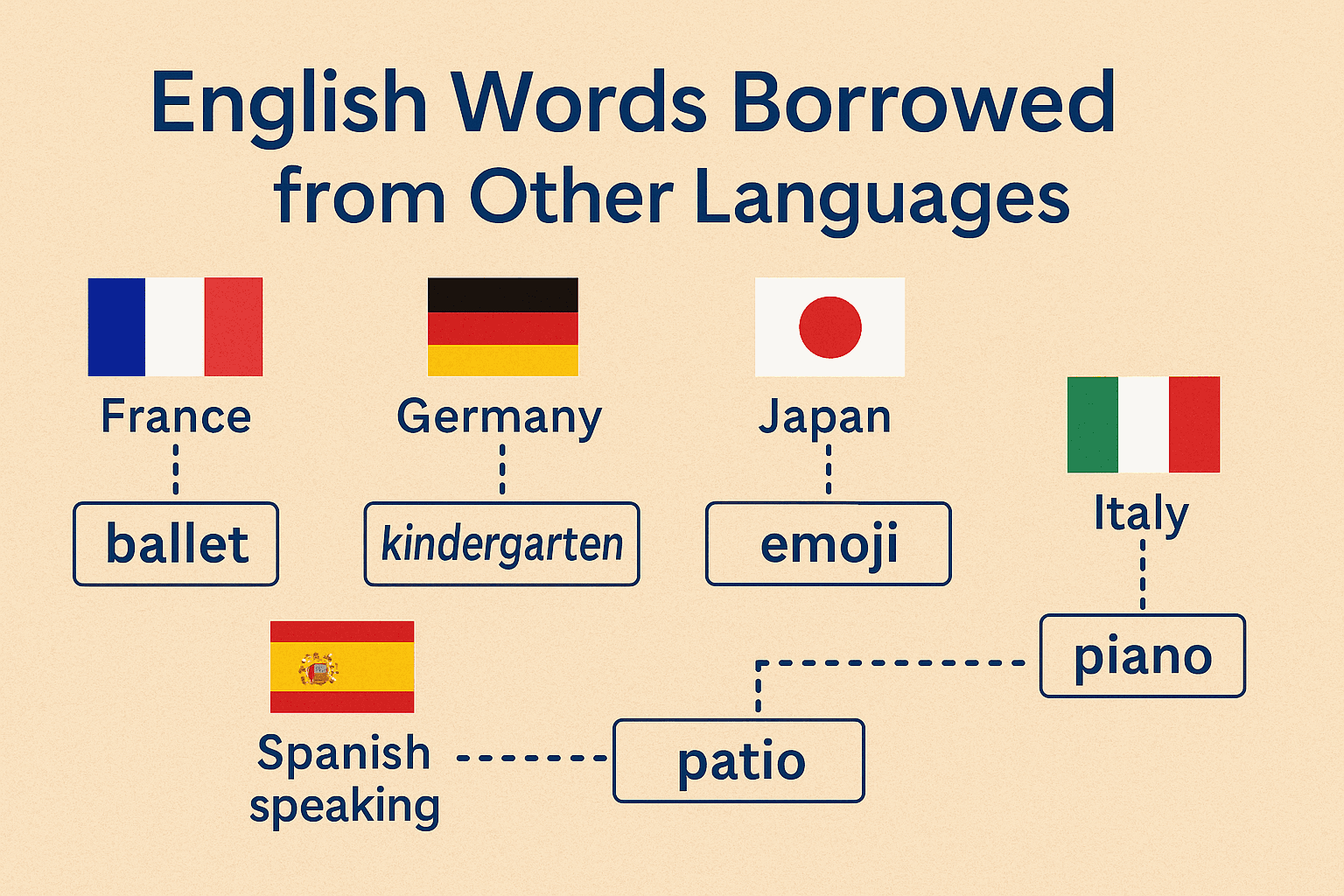English Word Origins: Stunning Insights You Never Knew
Have you ever paused during a conversation and wondered where a particular word originated? The English language is a treasure trove of words, each with unexpected origins that often weave through history, culture, and even playful accidents. In this article, we will delve into the surprising English word origins of everyday terms, revealing the fascinating stories that have shaped our language.
The Fascinating Journey of English Word Origins
Words in English often trace their roots back to ancient languages, medieval tales, and cultural nuances. Let’s embark on a journey to discover the intriguing origins of some commonly used words.
1. Salary
– Modern Meaning: Monthly or biweekly pay for work.
– Surprising Origin: This word comes from the Latin salarium, originally referring to the money given to Roman soldiers for purchasing salt, a vital commodity at the time. Salt was so important that it became a metaphor for value and worth.
Example: “She earns a good salary at her new job.”
2. Nightmare
– Modern Meaning: A frightening dream.
– Surprising Origin: The term combines night with mare, an Old English word for a mythical spirit believed to sit on people’s chests while they slept, inducing fear or discomfort during dreams.
3. Clue
– Modern Meaning: A piece of evidence or information.
– Surprising Origin: The word is derived from the Greek clew, which means a ball of thread. This stems from the myth of Theseus navigating the labyrinth with a thread from Ariadne, allowing him to find his way back after slaying the Minotaur.
4. Quarantine
– Modern Meaning: Isolation to prevent the spread of disease.
– Surprising Origin: From the Italian quaranta giorni, meaning forty days. During the plague, ships arriving in Venice had to remain isolated for forty days before their passengers could disembark, a practice intended to halt disease transmission.
5. Sandwich
– Modern Meaning: Food served between two slices of bread.
– Surprising Origin: Named after John Montagu, the 4th Earl of Sandwich. Allegedly, he ordered meat between bread so he could continue playing cards without using utensils—an act that inadvertently created a beloved meal.
6. Disaster
– Modern Meaning: A sudden catastrophe.
– Surprising Origin: Coming from the Latin dis- (bad) and astrum (star), this term originally meant ill-starred, suggesting that misfortunes were influenced by the positions of celestial bodies.
7. Whiskey
– Modern Meaning: A distilled alcoholic beverage.
– Surprising Origin: This word comes from the Old Irish uisge beatha, translating to water of life. Over time, uisge evolved into the modern term we know today.
8. Pandemic
– Modern Meaning: A disease outbreak that spreads across countries or continents.
– Surprising Origin: From the Greek pan- (all) and demos (people), which indicates something that significantly impacts everyone—a reflection of the interconnected world we live in.
9. Robot
– Modern Meaning: A machine that performs tasks typically done by humans.
– Surprising Origin: The term originates from the Czech play R.U.R. (Rossum’s Universal Robots) by Karel Čapek, where robota means forced labor or servitude. This concept has evolved into our modern understanding of robotics.
10. Candidate
– Modern Meaning: A person applying for a job or position.
– Surprising Origin: The word is derived from the Latin candidatus, meaning clothed in white. In ancient Rome, political candidates donned white togas, symbolizing purity and honesty, an ironic nod to political practices that persist today.
More Words with Fascinating Histories
| Word | Origin | Modern Use |
|———–|——————————————-|——————————–|
| Alcohol | Arabic al-kuḥl | Intoxicating beverage |
| Ketchup | Malay/Chinese kê-tsiap | Tomato condiment |
| Algebra | Arabic al-jabr | Math concept |
| Avatar | Sanskrit avatāra | Digital or spiritual form |
| Berserk | Old Norse berserkr | Out of control or wild |
Why Knowing English Word Origins Matters
Understanding etymology—English word origins—offers several advantages:
– It enhances vocabulary retention and aids in comprehending unfamiliar terms.
– It provides insight into the cultural and historical contexts behind words.
– It adds richness and nuance to both writing and speaking.
Final Thoughts
Words are more than mere tools for communication; they are time capsules filled with history and meaning. Each time we use words like salary or clue, we are echoing the intricacies of Roman trade, Greek mythology, and medieval beliefs. The English language is brimming with these hidden histories, waiting to be explored. So, the next time you enjoy a sandwich or raise a toast with whiskey, remember the remarkable stories behind these everyday terms and appreciate the fascinating realm of etymology.
Have you ever stopped to think about where English words actually come from?
According to the Oxford Languages Blog, over 60% of English vocabulary has roots in Latin and French, with the rest drawn from a fascinating mix of Germanic, Norse, and even Arabic influences. Each borrowed word carries a story — a journey through history, trade, and culture — quietly hiding inside the language we use every day.
Brand Name Generator | Free Name Generator | Fantasy Name Generator




